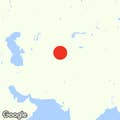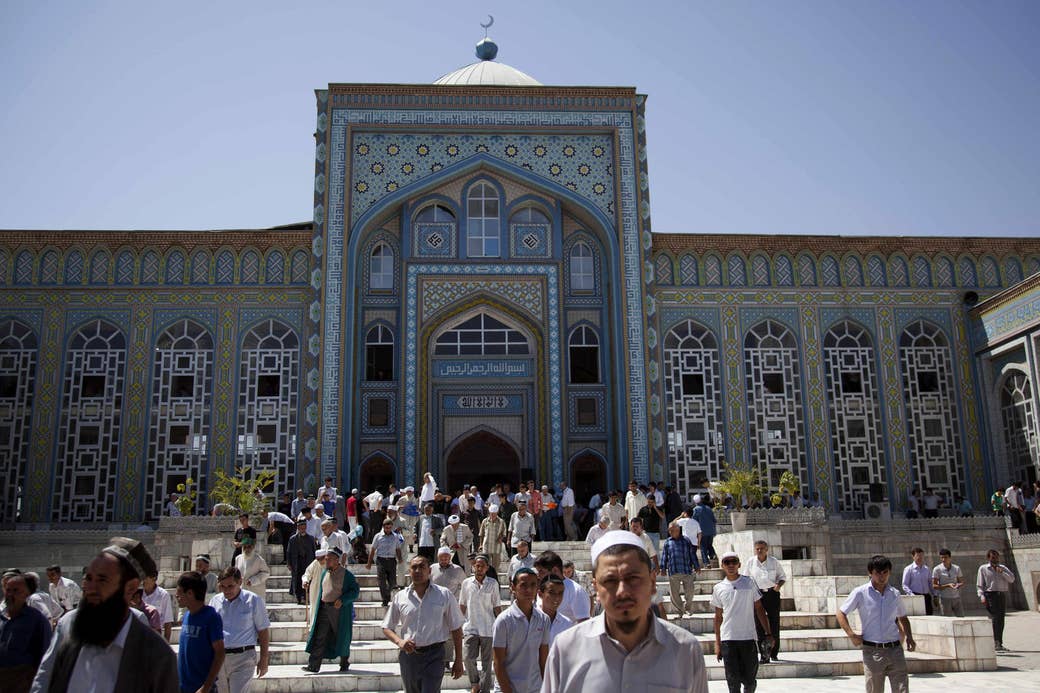
DUSHANBE, Tajikistan — This fall, the United States is sponsoring seven American undergraduate and graduate students, ranging from aspiring soldiers to diplomats, to study Farsi, Iran’s native language, on a semester abroad.
But there’s one major hitch: The U.S. can’t fund the students to study in Iranian universities. Despite the summer’s historic nuclear deal, the two rivals still have no formal diplomatic relations. So instead, the U.S. sends Americans 1,000 miles east to Dushanbe — the humdrum capital of the former Soviet republic of Tajikistan.
The whole situation — many students, educators, and diplomats admit — is weird. For some, the arrangement is the best of all possible ways to advance U.S. interests and expertise on the Islamic Republic of Iran and the region. For others, the costs and consequences are emblematic of how far the U.S. still has to go to understand Iran.
“It's definitely strange studying Farsi here,” Shayan Enferadi, 27, an Iranian-American graduate student living with a Tajik family on a U.S.-funded program, told BuzzFeed News. “But if you’re in the know it’s pretty obvious. There are very few people who come to Tajikistan to actually study Tajikistan.”
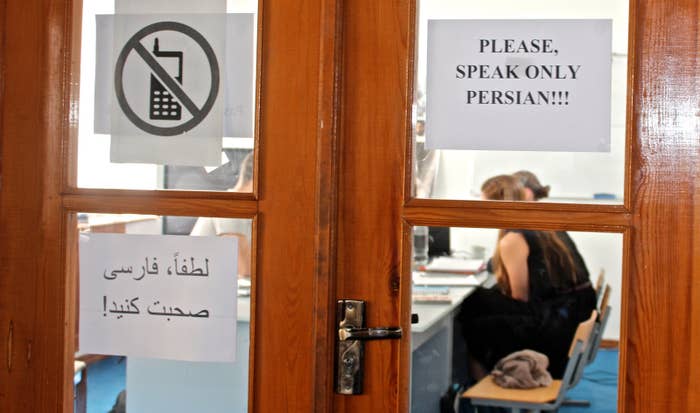
Like most students, Enferadi knew very little about Tajikistan before he arrived here for a fellowship. But he did know that linguistically, the country was messy: Tajikistan’s Tajik, Iran’s Farsi, and Afghanistan’s Dari are all part of the same Persian family — except after 60 years under Russian rule, Tajiks pepper their talk with Russian and write using Cyrillic letters instead of Arabic.
He also felt he had no other option: Even though a thaw in U.S.-Iran relations has made it easier for Americans (and dual Iranian citizens) to tour and study in Iran, Dushanbe remains the go-to destination for those with military or government connections.
This fall, West Point Military Academy sent its first batch of students to study Persian in Dushanbe with more planning to come in the spring. Along with the incentive of grants to fund tuition, airfare, and other expenses, students told BuzzFeed News they worry that going to Iran now might make it harder for them to work with the government later.
“At some point I’m going to have to get a security clearance, so going to Iran wasn’t still too much of an option,” said Monet Niesluchowski, 20, an undergraduate at Arizona State University studying with Enferadi.
So students like Niesluchowski have been landing in Tajikistan, one of the poorest countries in Central Asia, famous for its mountainous hikes and infamous for its corruption. Unlike Iran, the country’s population is mainly Sunni Muslim, and vast parts of the country remain largely rural. Despite being a city of 750,000, Dushanbe is relatively quiet, and foreigners split their time between a few bars and hotels largely isolated from the locals.
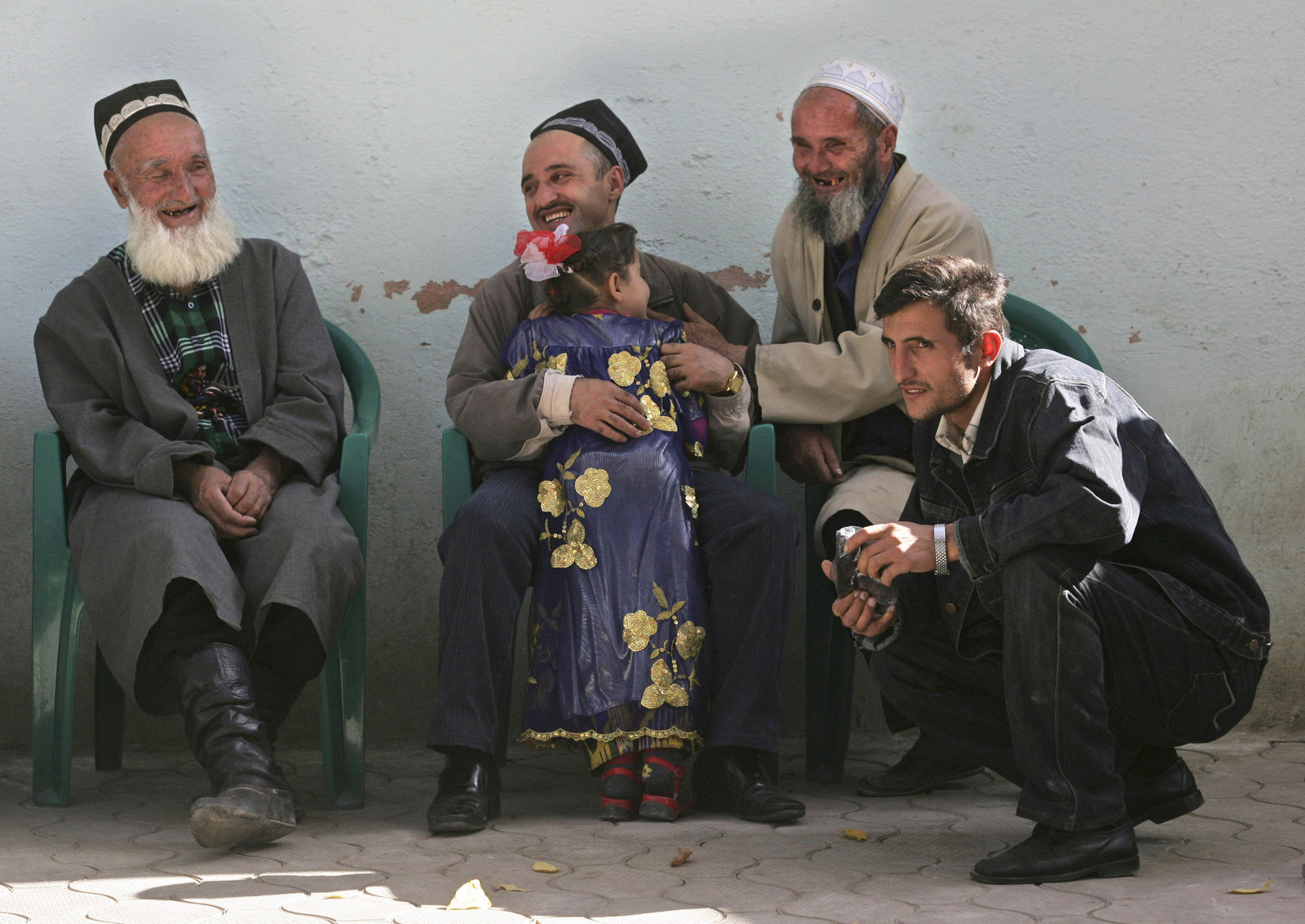
Tajikistan today is a product of its Soviet experience and a five-year civil war that followed. The country has been led since 1994 by pro-Russia President Emomali Rahmon, whose expressionless face can be seen plastered on posters in public spaces across the country. Rahmon himself is known for repressive and bizarre displays of power — he has banned public celebration of birthdays and periodically blocked Facebook, YouTube, and text messaging.
In keeping with former Soviet rules, the government restricts religious practice: Beards and Arabic-sounding names are banned, and children cannot attend Mosques until the age of 18. Still, the United States has maintained a close diplomatic relation with the government, providing it with security and monetary assistance in form of aid. Human rights groups warn that this summer Tajikistan’s repression reached a crisis mode and that unconditional U.S. support is in part fueling Rahmon’s impunity.
In recent years, Rahmon’s repression has given a rise to new forms of religious expression, just as funding from countries like Qatar and Saudi Arabia has increased interest in Islam. New mosques, largely banned under the Soviets, are being built around the country, and it is not uncommon to see more women in the capital adding non-Tajik styles of veils to their traditional Tajik dresses. At the same time, there is also fear of the growing attractiveness of ISIS: In May, Tajikistan’s security chief defected to ISIS, raising alarm over his future motives back home. The government says several hundred Tajiks have joined the terrorist group as well.
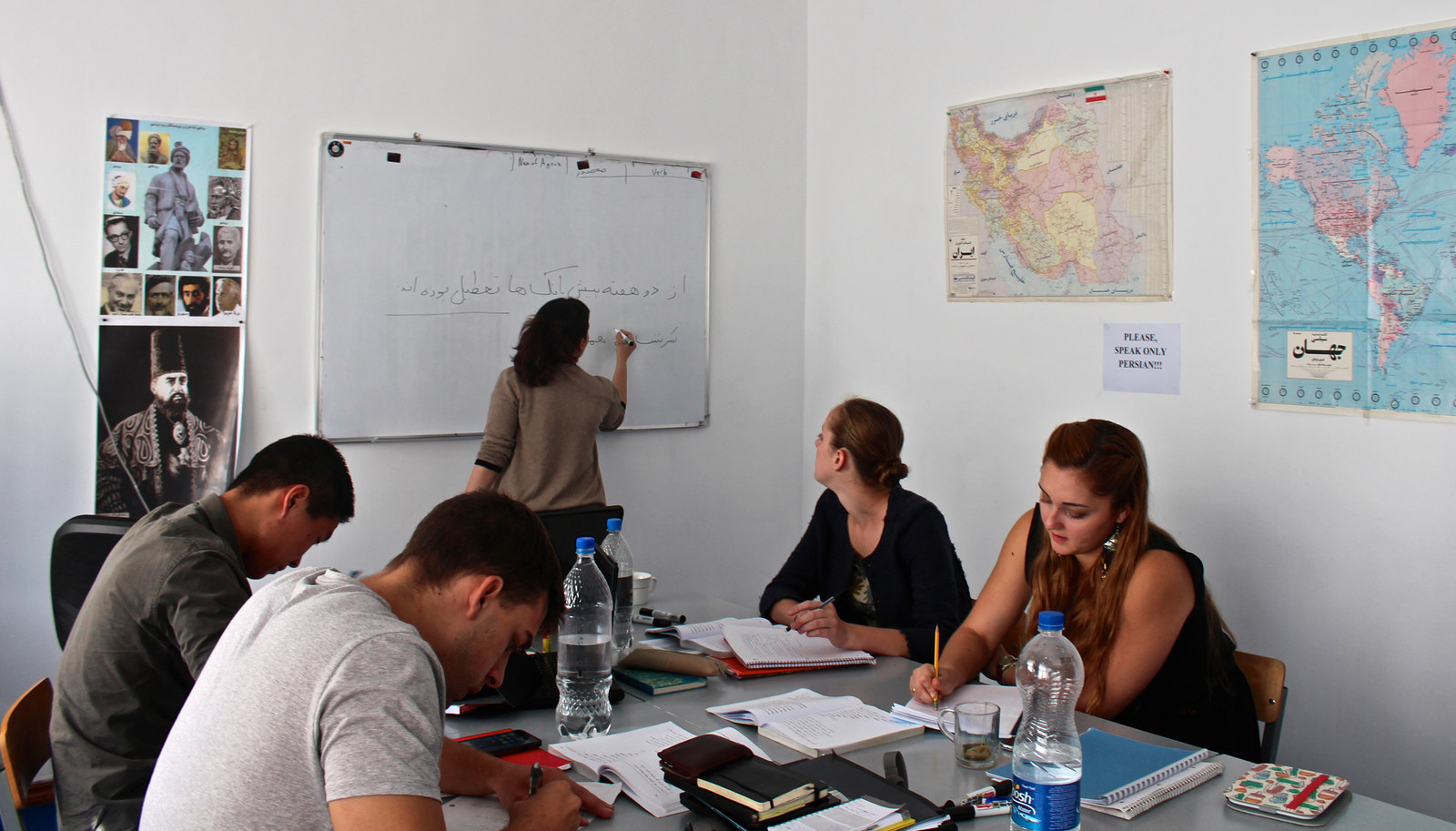
Still, Americans continue to travel freely in Dushanbe, unlike in Tehran and Kabul, and it doesn’t look like Tajikistan will lose its status as America’s “Little Iran” any time soon.
Both Niesluchowski and Enferadi are the recipients of the Boren Awards, a prestigious grant supported by the Department of Defense, to fund a year of language study in exchange for a period of work with the U.S. government. They are studying with five others at the American Councils Eurasian Regional Language Program, funded in part by the U.S. State Department and the Department of Education.
These programs, along with others like the Fulbright and Critical Language Scholarships, are among America’s core initiatives to encourage U.S. citizens to study abroad — and try to bolster American interests while doing so. Such government connections have made these programs grounds for suspicion among Iranians and other international hosts.
Students who spoke to BuzzFeed News said they feel safe in Tajikistan, but they said some educators have warned them to remain wary of Iranian spies because Iran’s embassy in Dushanbe is known to keep tabs on Americans studying Persian, weary of U.S. government ties.
That is one of the realities of studying Persian here — there aren’t many ways to interact with actual Iranians and their politics or culture. Dushanbe’s Iranian community is a small and largely transient mix of spies and diplomats, students at Tajik universities, and businessmen — including those looking to avoid Western sanctions in Iran — along with a few Iranian restaurants and supermarkets.
"If you are interested in Iran, you don’t need to come here."
Nonetheless, Britton Tremain, a West Point student from New Jersey who rarely travels abroad, found Tajikistan defied his expectation of what a Muslim-majority country could be like.
“It’s like a mix of Soviet and Russian influence and then Islamic influence and they still have a good view of America,” Tremain said.
Enferadi, however, conceded that language-wise, an immersion program he did at a U.S. university was better for his Persian.
“If you are interested in Iran, you don’t need to come here,” he said.

Jace Livingston, the resident director for Language Programs at the American Councils in Dushanbe, says he hears this criticism a lot. He says students often complain that Tajikistan wasn’t the Iran they signed up for. But he insists that Tajikistan remains a useful place to study Persian by providing a window into Afghanistan and Central Asia, rather than just viewing Iran through Europe and the Middle East.
Livingston, 30, first came to Tajikistan in 2006 to study Persian on a Boren fellowship and unlike nearly all his counterparts then transitioned to study Tajik instead. He’s since watched the U.S. struggle to secure consistent funding and a suitable place to send students as the need and demand for Persian speakers has grown.
Now Livingston worries that the new students, future soldiers and diplomats, who focus exclusively on Iran from Tajikistan run the risk of misunderstanding both. And when Iran and the U.S. do eventually renew diplomatic ties, he fears that more Americans will entirely forget about Tajikistan.
“I’m worried that when Iran opens up this is all just going to go away,” Livingston said. “I’m worried that a lot of Americans are going to end up completely ignoring this country.”

